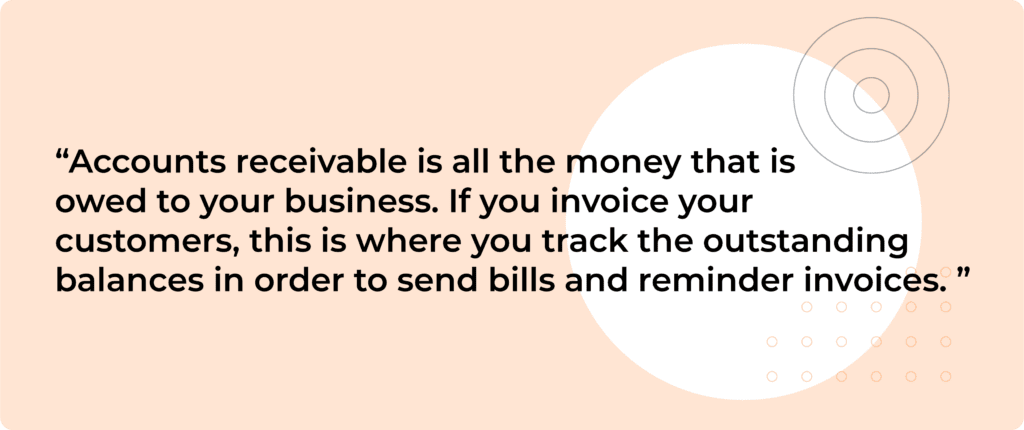Examples of Bookkeeping for a Small Business

Did you know that only 40% of business owners feel they are extremely or very knowledgeable about accounting and finances, including bookkeeping? That leaves over half of the 30.7 million small businesses in the US with owners who aren’t confident in one of the foundational aspects of running a business—managing and tracking money.
If you’re one of those business owners, that’s okay! Part of being a business owner is jumping in and doing your best, despite not knowing everything. Some more good news: you don’t have to do it alone. There are many solutions that can help you, like accounting software.
Let’s take a look at some common bookkeeping tasks, how to set up bookkeeping processes, and how to determine if you may need to outsource these accounting functions in order to focus on what you do best—growing your business.
What are examples of bookkeeping for a small business?
What functions count as simple bookkeeping for a small business? Let’s take a look at some bookkeeping service examples and areas where you need to consider the bookkeeping tasks.

Accounts Payable and Receivable
With accounts payable, you’ll want to track everything that your business owes. All the bills for things like rent, electricity, wi-fi, etc and any invoices from vendors. Keeping track of your accounts payable helps you make sure your bills are paid on time and that your cash flow is managed properly.
Accounts receivable is all the money that is owed to your business. If you invoice your customers, this is where you track the outstanding balances in order to send bills and reminder invoices.
Reconciliation
With reconciliation, you’ll compare your business records with financial transactions to ensure that the numbers are correct and in agreement.
Reconciliation is an important way to confirm that your accounts are accurate, complete, and consistent. What’s more, reconciliation can act as a tool to help you find and explain any differences or inconsistencies that you find.
Cash Account & Recording Sales
With a cash account, you will track all of the business transactions and record cash payments, withdrawals, and deposits. This includes credit card transactions.
Recording sales accurately and timely is important to keep your business accounts accurate and up-to-date for tax purposes and for you to understand the financial picture of your business on a day-to-day basis.
These are just a few examples of the types of bookkeeping tasks that you may need for your company. Of course, each business is different and will have its own set of necessary tasks and responsibilities.
How do I set up bookkeeping for my small business?
If you’re wondering how to do bookkeeping for a small business but aren’t even sure where to start with a balance sheet, don’t worry! There are many solutions and products out there to help you set up your bookkeeping and maintain accurate and reliable records. For example, there is bookkeeping software for small business, like QuickBooks Online as the most recognizable tool.
However, like any tool, you have to know how to use it in order to get the best results. If you aren’t really clear on what bookkeeping software does, it won’t really help you to pay a monthly fee. Additionally, while there are automated processes and ways to hook software up to your accounts, reviewing your bookkeeping records manually is important to make sure that everything is working properly and being recorded correctly.
Another route is to contact an outsourcing company that specializes in bookkeeping and outsourced accounting. These services can often save you time and money when setting up your bookkeeping processes and come with the benefit of seasoned professionals who know exactly what they are doing.
Do I need a bookkeeper for my small business?
Every business has bookkeeping tasks that need to be done. There’s no escaping these administrative functions, although many business owners handle it themselves. However, if your business is growing or you find yourself pulled in too many directions, then outsourcing these functions may be beneficial for you.
Here are some questions to ask yourself to determine if a bookkeeper may be a good fit for your business:
- Are other parts of your business suffering because you have to deal with categorizing transactions?
- Is your accounts receivable behind? Are you late sending out client invoices?
- Do you have a drawer where you shove all your receipts that you’re scared to open?
- At tax time, do you scramble to get your books in order?
- Do you spend more than 4 hours a month on bookkeeping tasks?
- Are your books accurate enough to inform the business?
If you’ve answered yes to some of these questions, it may be time for you to outsource your small business bookkeeping responsibilities in order to help your business function better.
Where can I find a bookkeeping company for my business?
If you’re ready to open your desk drawers without fear, Milestone is standing by to take that mess of receipts and bills and turn them into proper financial reports. Our approach is collaborative—our team becomes your team, and our bookkeeping services (starting at just $60 per hour) can help you get your processes under control and running smoothly. A better back office is just around the corner, so contact us today to discuss your bookkeeping needs.
Related Content

What Is A Balance Sheet For A Law Firm?
The balance sheet is one of the fundamental financial statements used by law firms to summarize their financial position at ...

Should Law Firms Use Cash Or Accrual Accounting?
Deciding between cash accounting and accrual accounting is a critical decision for any business. Discover the pros and cons of ...

What is Law Firm Accounting?
Professional services provide expert advisory and specialized solutions to businesses or individuals. See how accounting services fit in.
Stay in the know